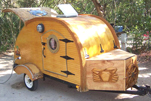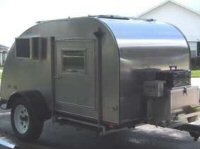I foresee after Fidel's death that they will be a democracy and may even return the good old days of the 1950s.
http://www.imdb.com/name/nm0061145/bio
Fulgencio Batista Zaldívar was born in Oriente Province, Cuba, on January 16, 1901. His parents were workers on a sugar plantation and Batista, not wanting to spend the rest of his life cutting sugar cane, joined the army when he turned 20. He rose steadily, if unspectacularly, through the ranks and in 1932 was promoted to sergeant. In 1933 he had become powerful enough to lead a successful coup - known as the "Revolt of the Sergeants" - against the progressive government of Gerardo Machado. After the coup Batista appointed himself head of the armed forces and quickly set out to consolidate his power. A year later he forced out the nominal president and appointed himself de facto ruler, although he used a succession of front men to hold the office of actual president. Batista quickly gained the support of the U.S. government, which saw him as friendly to its political and economic interests. He also formed a friendship with American gangster Meyer Lansky - known as the "treasurer" of the American Mafia - that would last for 30 years. Through his friendship with Lansky Batista was introduced to major Mafia figures, resulting in his forming a business partnership with some of the most notorious figures in American organized crime. They built hotels and gambling casinos, and controlled prostitution and the drug trade between Cuba and the U.S. (giving Batista a piece of the action). A change in the Cuban constitution in 1940 forced Batista to run for election as president, an election he won handily. However, the corruption and political repression of his regime and a string of high tax increases resulted in his losing re-election in 1944, after which he moved to Florida. He ran for and won a seat in the Cuban parliament in 1948 and ran for president in 1952. However, when it became clear that he would not win the election, he led a revolt against the government and once more took over, suspending the constitution and granting himself complete power. He formed an even closer relationship with American organized crime figures, which allowed them to spread their influence into Central and South America, and opened up the country to investment by large American corporations, which were attracted by his policy of keeping wages artificially low and silencing or jailing (or killing) labor-union leaders. Eventually, however, the corruption and repression engendered violent opposition, and a rebel movement led by Fidel Castro rose up in 1953. They were defeated, with many of their number killed and others - including Castro - sent to prison. In 1956, after his release from jail and flight from Cuba, Castro returned with a small army to resume the fight. A series of strikes, riots and university protests resulted in Batista's government growing even more repressive, and many opposition figures were beaten and killed. Armed opposition to his regime grew, and the various resistance groups came together under Castro's leadership. After a series of defeats inflicted by the rebels on his army and the U.S. government's finally withdrawing support for his regime, Batista fled the country on January 1, 1959, and Castro took over. Batista first went to the Dominican Republic, but eventually moved to Portugal, where he died on August 6, 1973.








 Jim G
Jim G



